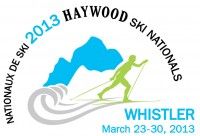March 17, 2011 (Canmore, AB) – When two-time Olympic cross-country skier George Grey hits the start line for Saturday’s 50-kilometre skate-ski race at the Haywood Ski Nationals, it will be his final competitive trip around the famed Canmore Nordic Centre.
![George Grey (CAN) at the World Cup in Oberhof, Germany. [P] Nordic Focus](http://skitrax.com/wp-content/uploads/2011/03/Grey020110ah062.2.jpg)
After racing on the World Cup for nearly a decade against the top athletes on the globe, and competing in the Torino and Vancouver Olympics along with five World Championships, the 31-year-old Grey, of Rossland, B.C., has decided to retire.
“For me the timing just felt right,” said Grey, who started skiing when he was four years old, and racing at age seven. “In the last two years I felt like I accomplished many of my career goals and reached a performance level that was as high as I could attain. I am now looking forward to being a husband, father, and to new challenges and experiences in life.”
![George Grey (CAN) at the Vancouver 2010 Olympics. [P] Heinz Ruckemann](http://skitrax.com/wp-content/uploads/2011/03/Gray-OLY20100215831-GRAY.2.jpg)
“I reached a peak in 2010 and thought maybe, just maybe, if I skied one more year I could contend for a medal in 2011 at the World Championships. To be able to hang in for one more season and experience the World Championships in Norway, and see Devon and Alex become World Champions, was an incredibly memorable final season.”
With Canada’s Beckie Scott having just broken through to win Canada’s first Olympic medal in the sport, Grey emerged onto the National Ski Team in 2002 with a group of bright-eyed, energetic young men from across the country poised and determined to follow Scott’s trail to the international podium.
![(l-r): George Grey, Alex Harvey (CAN) celebrate third place. [P] Heinz Ruckemann](http://skitrax.com/wp-content/uploads/2011/03/Gray-Harvey-WHP2009011803.2.jpg)
Devon Kershaw was the first to find his way onto the podium. Kershaw became the first male in more than a decade to mount the international podium in 2006, and it didn’t take long for the others to follow suit. Four years later, Grey enjoyed a breakthrough moment of his own with his most memorable races coming at Whistler Olympic Park. The veteran teamed up with National Ski Team rookie, Alex Harvey, in 2009 to win a World Cup bronze medal in the sprint relay at the Olympic Test Event in Whistler. His best Olympic and individual career finish was eighth during the pursuit competition in 2010 when all three Canadian men finished in the top-10, and all four in the top-20.
![George Grey (CAN) greets fans after third place. [P] Heinz Ruckemann](http://skitrax.com/wp-content/uploads/2011/03/Gray-Fans-WHP2009011808.jpg)
“Getting my hands on just one medal was such an incredible high for me, and sharing it with such a talented athlete and friend in Alex made it even sweeter,” said Grey, whose best individual result outside the Olympics was a ninth-place finish at the Tour de Ski prologue in 2009. “My fondest memory has to be the 30-kilometre pursuit race with Ivan (Babikov), Alex (Harvey), and Devon (Kershaw) skiing right at the front of the pack with me. We were showing the world that we had finally arrived, and what we were capable of as a team. It was a career best for me, and to do it at a home Olympics with three of my buddies was amazing.”
After 10 years of blood, sweat and tears, Grey leaves the sport with the Canadian men’s squad amongst the best in the world.
“When I joined the Canadian men’s team we were described as ‘Canada’s most anonymous athletes,’ he said. “Now our team has World Championship medallists, World Cup medallists, Tour de Ski medallists. We have delivered a solid team. I know Canada is in good hands and there is loads of great talent coming up the system so I will sleep well.”
While racing was such a small part of his career, it was the countless hours of training with his friends and teammates that taught him to be patient, driven, tough and most importantly, goal-oriented along the journey.
“I get nostalgic thinking about all the hard training days that I endured with teammates at my side,” said Grey, who cites five-to-six hours of roller skiing in the pouring rain, nearly 50 kilometres of running and stomping their way up to glaciers as some of the most grueling training moments. “Only with your closest teammates is it possible to repeat training days like this every other week. My team and I have shed more sweat and spit on mountains than most would ever think possible.”
![George Grey in action at the XC Ski Nationals in Canmore. [P] Pam Doyle](http://skitrax.com/wp-content/uploads/2011/03/George-Grey-PDoyle.jpg)
With the last goal remaining in his career to ski to the top of the podium on Saturday at the Haywood Ski Nationals, Grey would like to stay within sport if there is an opportunity to do so in the future, while also studying in the securities industry.
“The 2010 Olympics were sensational. The World Champs this year in Norway were staggering, but I am more than happy to wave a warm good-bye and smile at all the precious memories that I have accumulated. Thank you to everyone for your incredible support. My father always told me it is the process and not the outcome. I have fully realized that now, and I will never forget those who have helped me along this incredible ride.”
 February 20, 2013 (Whistler, B.C.) – Join Olympic and World Cup gold medalists Devon Kershaw and Alex Harvey, along with rising stars Len Valjas and Perianne Jones as they compete in the Haywood Ski Nationals – the last major domestic racing event before the 2014 Sochi Olympics.
February 20, 2013 (Whistler, B.C.) – Join Olympic and World Cup gold medalists Devon Kershaw and Alex Harvey, along with rising stars Len Valjas and Perianne Jones as they compete in the Haywood Ski Nationals – the last major domestic racing event before the 2014 Sochi Olympics.




![(l-r): Arianna Follis (Italy), Magda Genuin (ITA) on the podium [P] Heinz Ruckemann](http://skitrax.com/wp-content/uploads/2011/10/Follis-Genuin-WHP2009011809-298x302.jpg)
![Petter Northug (NOR) [P] Nordic Focus](http://skitrax.com/wp-content/uploads/2011/09/northugalpina.jpg)
![Petter Northug (NOR) [P] Stian Broch](http://skitrax.com/wp-content/uploads/2011/08/Northug-04_CC_30k_pusuit_men-152-1.jpg)
![Martin Koukal (CZE) [P] Heinz Ruckemann file photo](http://skitrax.com/wp-content/uploads/2011/05/Martin-Koukal-WHP2009042606.2.jpg)
![George Grey (CAN) at the World Cup in Oberhof, Germany. [P] Nordic Focus](http://skitrax.com/wp-content/uploads/2011/03/Grey020110ah062.2.jpg)
![George Grey (CAN) at the Vancouver 2010 Olympics. [P] Heinz Ruckemann](http://skitrax.com/wp-content/uploads/2011/03/Gray-OLY20100215831-GRAY.2.jpg)
![(l-r): George Grey, Alex Harvey (CAN) celebrate third place. [P] Heinz Ruckemann](http://skitrax.com/wp-content/uploads/2011/03/Gray-Harvey-WHP2009011803.2.jpg)
![George Grey (CAN) greets fans after third place. [P] Heinz Ruckemann](http://skitrax.com/wp-content/uploads/2011/03/Gray-Fans-WHP2009011808.jpg)
![George Grey in action at the XC Ski Nationals in Canmore. [P] Pam Doyle](http://skitrax.com/wp-content/uploads/2011/03/George-Grey-PDoyle.jpg)
![The Olympic cauldron is relit for the one year anniversary of Vancouver 2010. [P] Heinz Ruckemann](http://skitrax.com/wp-content/uploads/2011/02/Flag-VAP2011021203.2-200x197.jpg)
![The Olympic cauldron is relit for the one year anniversary of Vancouver 2010. [P] Heinz Ruckemann](http://skitrax.com/wp-content/uploads/2011/02/Flame-VAP2011021201.2.jpg)